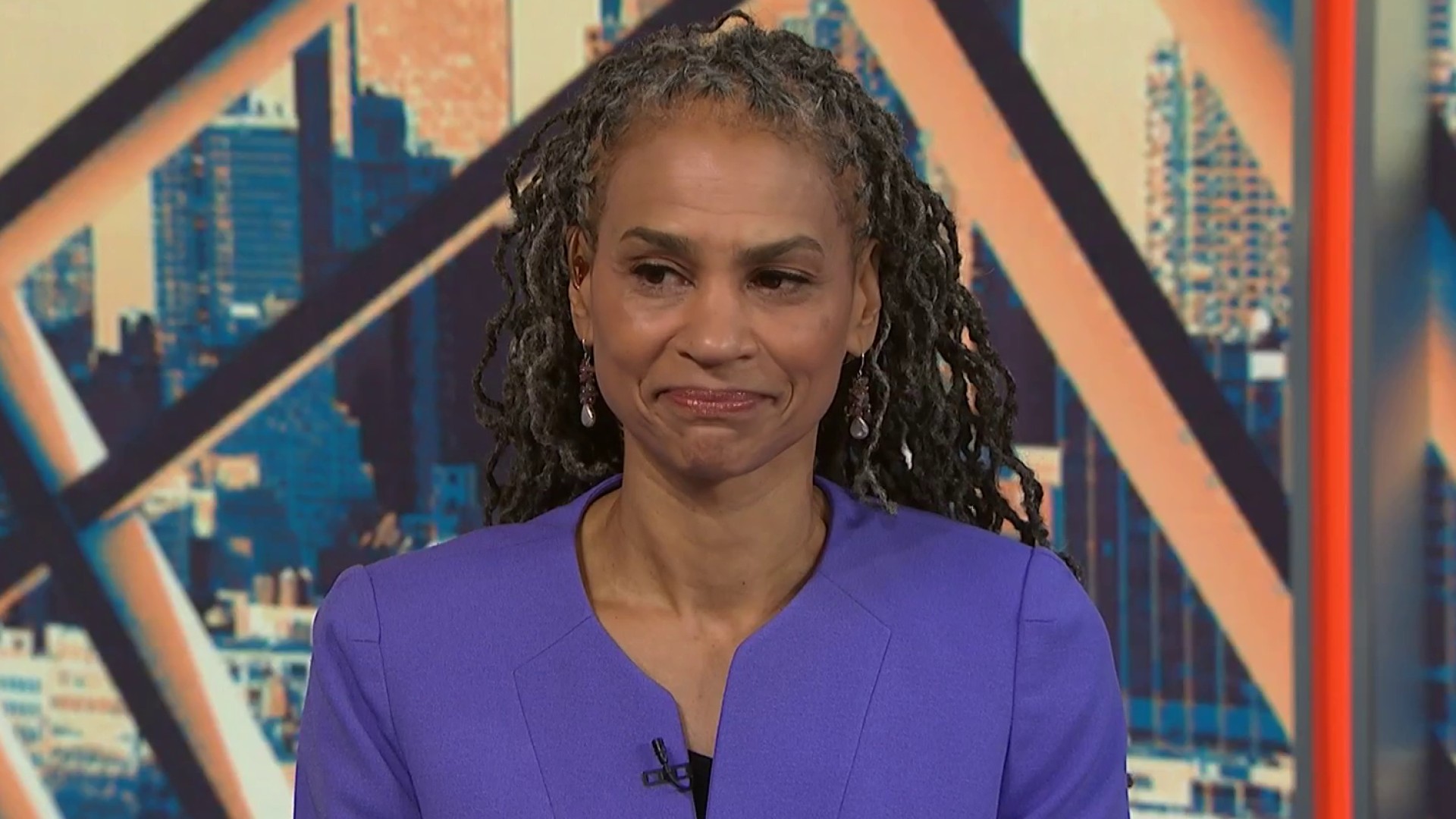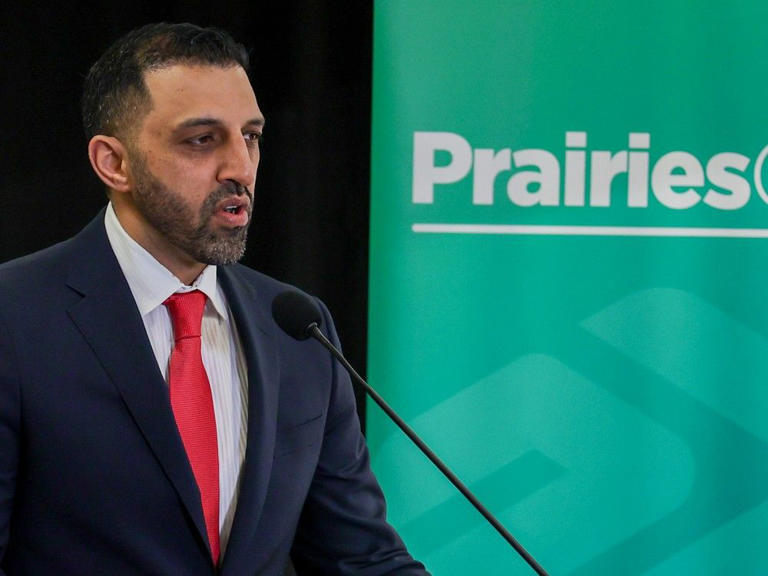Story by C. A. Bridges and Thao Nguyen,
USA TODAY NETWORK • Tuesday, May 16, 2023
Truck drivers called for boycotts over the weekend against Florida's tough new penalties and restrictions on undocumented immigrants in the state, which include requiring employers to verify if workers are authorized to work in the United States.
Social media "exploded" with reports of Latino truck drivers threatening to stop delivering to and in Florida, according to independent journalist Arturo Dominguez.
"Don't enter Florida," one trucker said in a TikTok video.
“My truck will not be going to Florida at all. I’m pretty sure we can all come together as a Latino community and boycott Florida as a whole because what they are doing to our brothers and sisters out there is not fair,” a truck driver said in another TikTok video.
Florida's new immigration law requires businesses with more than 25 employees to use E-Verify. The web-based, federal system allows enrolled employers to determine if their employees are legally authorized to work in the United States. It also invalidates identification cards issued in other states that are held by people who live in the country illegally.

Stock photo of trucks on the side of a road.© Pexels.com/Quintin Gellar
The new law, which was signed by Gov. Ron DeSantis Wednesday, will take effect July 1.
Why are truckers not delivering to Florida?
During the COVID-19 pandemic, the Trump administration established Title 42, part of a public health law to curb migration in the name of protecting public health. It allowed U.S. officials to turn away migrants at the U.S-Mexico border and denied migrants the right to seek asylum.
President Joe Biden tried to end the policy's use in 2022 but Republicans sued, claiming it was necessary for border security. Title 42 was tied to the national COVID-19 emergency declaration and it ended when that did last week, triggering GOP warnings of a massive surge at the border.
In response to the end of Title 42, the Florida legislature pushed through a new bill, which has been praised by supporters as necessary and condemned by critics as cruel and potentially leading to law enforcement profiling. It’s considered among the toughest steps taken by any state to deter migrants from arriving.
What does DeSantis' new immigration law do?
Florida's sweeping immigration bill, SB 1718, seeks to crack down on the flow of illegal immigration with some of the toughest penalties in the country. Among other things, the new law:
Requires private employers with 25 or more employees and all public agencies to use the federal E-Verify system to verify a new employee's employment eligibility, starting on July 1.
Social media "exploded" with reports of Latino truck drivers threatening to stop delivering to and in Florida, according to independent journalist Arturo Dominguez.
"Don't enter Florida," one trucker said in a TikTok video.
“My truck will not be going to Florida at all. I’m pretty sure we can all come together as a Latino community and boycott Florida as a whole because what they are doing to our brothers and sisters out there is not fair,” a truck driver said in another TikTok video.
Florida's new immigration law requires businesses with more than 25 employees to use E-Verify. The web-based, federal system allows enrolled employers to determine if their employees are legally authorized to work in the United States. It also invalidates identification cards issued in other states that are held by people who live in the country illegally.

Stock photo of trucks on the side of a road.© Pexels.com/Quintin Gellar
The new law, which was signed by Gov. Ron DeSantis Wednesday, will take effect July 1.
USA TODAY
What to know about the end of Title 42 and how it could affect migrants
What to know about the end of Title 42 and how it could affect migrants
Duration 2:21  View on Watch
View on Watch
Why are truckers not delivering to Florida?
During the COVID-19 pandemic, the Trump administration established Title 42, part of a public health law to curb migration in the name of protecting public health. It allowed U.S. officials to turn away migrants at the U.S-Mexico border and denied migrants the right to seek asylum.
President Joe Biden tried to end the policy's use in 2022 but Republicans sued, claiming it was necessary for border security. Title 42 was tied to the national COVID-19 emergency declaration and it ended when that did last week, triggering GOP warnings of a massive surge at the border.
In response to the end of Title 42, the Florida legislature pushed through a new bill, which has been praised by supporters as necessary and condemned by critics as cruel and potentially leading to law enforcement profiling. It’s considered among the toughest steps taken by any state to deter migrants from arriving.
What does DeSantis' new immigration law do?
Florida's sweeping immigration bill, SB 1718, seeks to crack down on the flow of illegal immigration with some of the toughest penalties in the country. Among other things, the new law:
Requires private employers with 25 or more employees and all public agencies to use the federal E-Verify system to verify a new employee's employment eligibility, starting on July 1.
Requires employers to fire an employee if they discover them to be a "foreign national" who is not authorized to work in the U.S. and makes it illegal for any person to knowingly employ, hire, recruit or even refer, either for herself or himself or on behalf of another, for private or public employment within the state, such a person.
Hospitals that accept Medicaid must ask patients if they are U.S. citizens and if they are here legally, and report that data (without personally identifying information) to the governor quarterly and annually.
Invalidates out-of-state driver's licenses issued to "unauthorized immigrants."
Makes it a third-degree felony for anyone who knowingly or who reasonably should know that they are transporting immigrants who entered the country illegally into Florida. Transporting a minor is a second-degree felony.
Expands the Florida Department of Law Enforcement’s counter-terrorism efforts to include immigration matters.
Appropriates tax dollars to be used for DeSantis' “unauthorized alien transport program,” the program he began when he flew about 50 Venezuelan migrants in two charter planes from Texas to Martha’s Vineyard, Massachusetts.
According to Susan Pai, a Florida immigration lawyer based in Jacksonville, the law also applies to people who lawfully entered the country on visitor and student visas but are not authorized to work
We don't know for sure that they are, yet. Dominguez retweeted several videos of truckers calling for a boycott.
In one of the TikTok videos, a trucker under the name of @robertooleo88oficial said, translated from Spanish: "Truckers, don't enter the state of Florida. Let's be united as Latinos in defense of our Latin American brothers who are being assaulted by this very stupid law, which incites hatred and discrimination. My truck won't move. Don't enter Florida. Nobody enter Florida."
Another backed him up.
“I’m not going to Florida. I’m with you," @elarracas91.1 said, translated from Spanish. "I’m a trucker and Cuban. The race needs help and here we are. Strength.”
“Look at how many truckers are behind me," he said. "We have lines and lines and lines of truckers.
“Remember one thing. In Florida, more goes in than comes out so if we don’t take anything to Florida. Tell me? What are they going to have? Let’s see what the governor is going to do. Is his little truck going to take things to his lousy racist people he has there?”
Immigrant advocates said Florida’s approach targets a community already struggling to survive with new criminal penalties and restrictions. Immigrants living in Florida, legally and illegally, represent a huge share of the state’s workforce, leaders added. And now with out-of-state driver's licenses for undocumented people invalid in Florida, some are concerned they will be profiled and stopped.
“I’ve been getting a lot of calls from people asking me if they should leave the state,” Pai said. “The undocumented community is very scared to even show up for work.”
How many immigrants live and work in Florida?
According to the Migration Policy Institute, about 21% of Florida's population is foreign-born.
The Farmworkers Association of Florida, a grassroots nonprofit that advocates for social and environmental justice with farmworkers, estimates that there are about 300,000 farm workers in Florida who live in the state illegally — making up about 60% of the state’s farm workers.
Contributors: John Kennedy, Capital Bureau, USA TODAY NETWORK - FLORIDA; Brandon Girod, Pensacola News-Journal, part of the USA TODAY Network
This article originally appeared on USA TODAY NETWORK: 'My truck won't move:' Are truckers boycotting Florida over DeSantis' new immigration law?
Threat of Trucker Protest Isn't Swaying Ron DeSantis on Migrant Crackdown
Story by Thomas Kika • May 15,2023

People look over a boat was left along the shoreline after it was used to transport Cuban migrants from the island nation on January 05, 2023 in Marathon, Florida. An increasing number of migrants from Cuba and Haiti have taken to the seas to reach the United States.

People look over a boat was left along the shoreline after it was used to transport Cuban migrants from the island nation on January 05, 2023 in Marathon, Florida. An increasing number of migrants from Cuba and Haiti have taken to the seas to reach the United States.
© Joe Raedle/Getty
Florida Governor Ron DeSantis on Monday stood by his state's recently passed immigration laws, despite reports of planned protests in response to it.
As Title 42 came to an end on Thursday, DeSantis signed into law a new bill, SB 1718, which will enact a handful of new rules against undocumented migrants when it goes into effect on July 1. This will include requirements that employers use E-Verify to ensure that their employees are authorized to work in the U.S. and that hospitals collect information on undocumented patients, among other things.
Florida Governor Ron DeSantis on Monday stood by his state's recently passed immigration laws, despite reports of planned protests in response to it.
As Title 42 came to an end on Thursday, DeSantis signed into law a new bill, SB 1718, which will enact a handful of new rules against undocumented migrants when it goes into effect on July 1. This will include requirements that employers use E-Verify to ensure that their employees are authorized to work in the U.S. and that hospitals collect information on undocumented patients, among other things.
NewsweekRon DeSantis Stands By New Florida Immigration LawsDuration 1:29 View on Watch
MSNBCThe cost of DeSantis' war on culture
7:13
NBC NewsFull Panel: DeSantis’ image that ‘he’s Donald Trump without the baggage' ... 'fell flat'
10:25
While the new bill has been praised by DeSantis's allies on the right, it has also received considerable pushback that continues to mount. On Saturday, independent journalist Arturo Dominguez began sharing to Twitter numerous clips of Latin American truck drivers calling for their fellow truckers to begin a service boycott of Florida, which would involve not bringing shipments into the state.
"Truckers, don't enter the state of Florida," one of the truckers said in Spanish. "Let's be united as Latinos in defense of our Latin American brothers who are being assaulted by this very stupid law, which incites hatred and discrimination...My truck won't move. Don't enter Florida. Nobody enter Florida."
Newsweek previously reached out to DeSantis's press office for comment on those reported boycott plans. While the governor has yet to issue an official statement on the issue, he stood behind SB 1718 during a press conference on Monday when he was pressed about the impact its new requirements would have on industries in Florida.
"Florida law is that you have to be here legally to able to be employed," DeSantis said. "That's been the law for forever. And so, when we have something like an E-Verify, that's a tool to make sure longstanding Florida law is enforced, and I think that that's important. You can't build a strong economy based on illegality."
Despite the numerous videos of truckers spreading on Spanish-language corners of social media, it remains unclear for the time being if any sort of protest has actually begun.
Meanwhile, immigrant advocates in Florida have reported that the state's undocumented communities are in a panicked state as SB 1718's new rules approach, with some considering if they might have to leave altogether.
"I've been getting a lot of calls from people asking me if they should leave the state," immigration lawyer Susan Pai said. "The undocumented community is very scared to even show up for work."
Others on social media have raised the concern that the new laws will lead to an increase in the profiling of anyone who appears to be Latin American or Hispanic, as SB 1718 will void any license issued out-of-state to undocumented individuals.
Newsweek reached out to the Florida Democratic Party via email for comment.
Related Articles
Truckers Threaten Ron DeSantis With Florida Boycott Over Migrant Crackdown
Latino Truckers to Boycott Florida, Videos Show: 'Will Not Be Going'


























